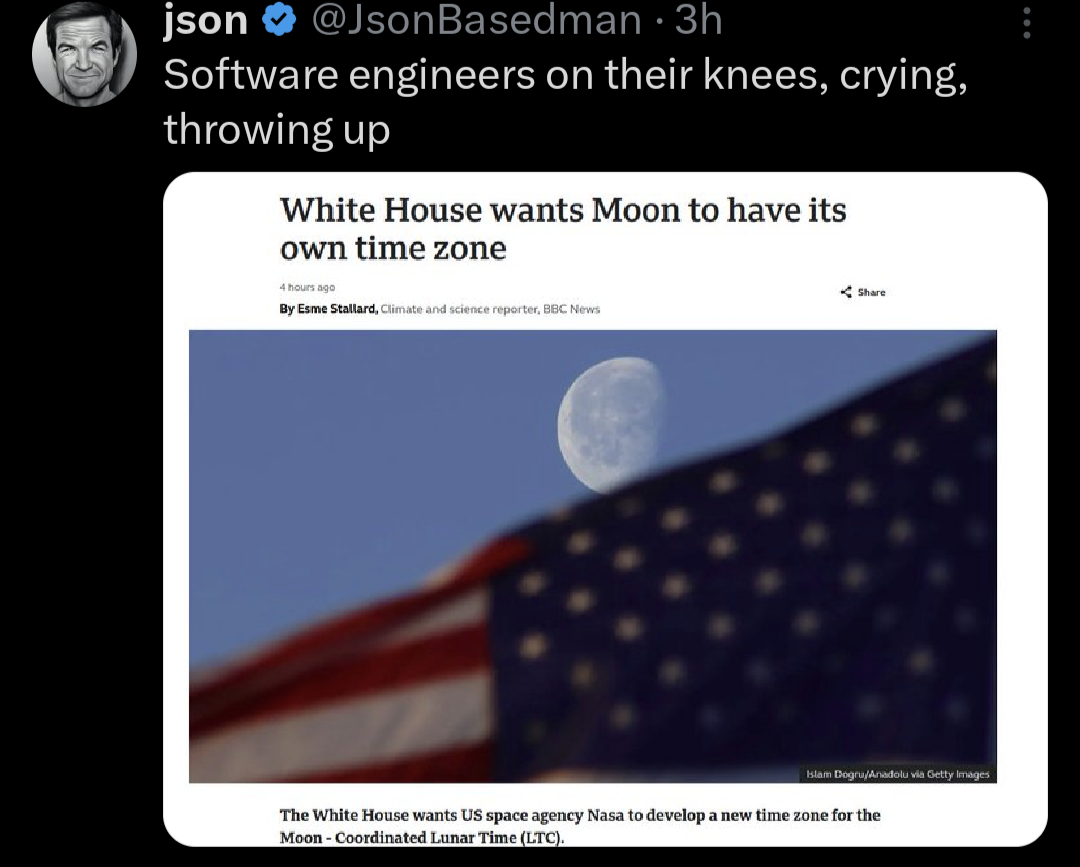this post was submitted on 17 Apr 2024
1472 points (98.6% liked)
Programmer Humor
24262 readers
826 users here now
Welcome to Programmer Humor!
This is a place where you can post jokes, memes, humor, etc. related to programming!
For sharing awful code theres also Programming Horror.
Rules
- Keep content in english
- No advertisements
- Posts must be related to programming or programmer topics
founded 2 years ago
MODERATORS
you are viewing a single comment's thread
view the rest of the comments
view the rest of the comments

It's also important for things like GPS, as related to other planets, as well as orbital maneuvering.
What they're actually being told to build is "write down the rules for moon time", which is basically what you said but defined in terms of "this much faster than earth time", and a system doing the same thing on other planets or places in the solar system.
So it's less a timezone and more a time system, and instructions for how you calibrate your atomic clock on the moon and reconcile the difference with terrestrial clocks.
Serious question....why would an entirely isolated GPS constellation need to have "a time zone" as opposed to it's own epoch (like unix)? It's on the receiver side that all the computation happens, aren't the satellites essentially just announcing an agreed-upon time? Wouldn't the client be able to do it's own comparison of "it's time", as long as it's source of time is also synchronized with the constellation?
I believe, and we're at the edge of my understanding here, that the satellites need a consistent adjustment for local relativity. Because the satellites also have their clocks tick differently.
So they define a new time standard for the moon so that lunar operations can function based on that time standard, rather than having to recalculate relative to earth.
https://arxiv.org/abs/2402.11150
That's the paper from NIST that's basically the timezone part of it all.
They're basically defining how to calibrate moon clocks so we all agree exactly how they differ from earth clocks.